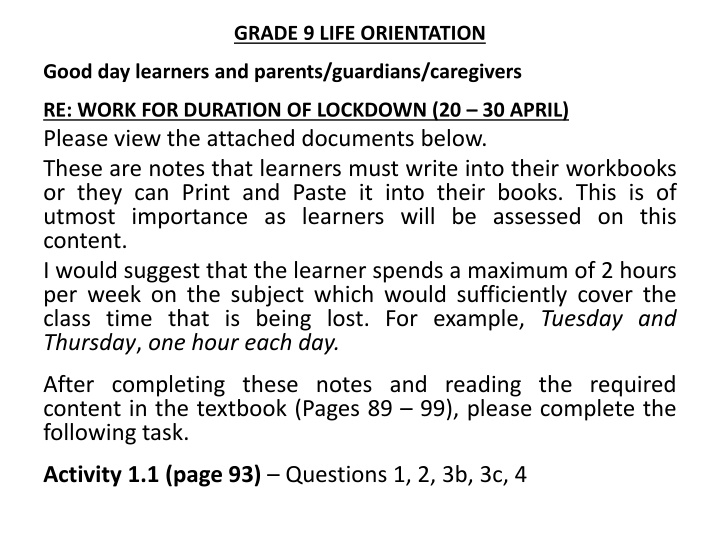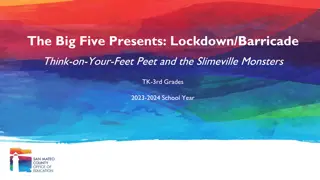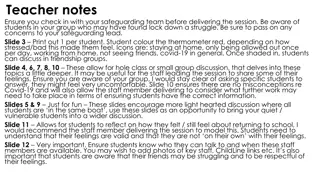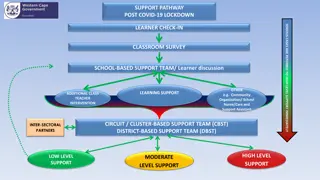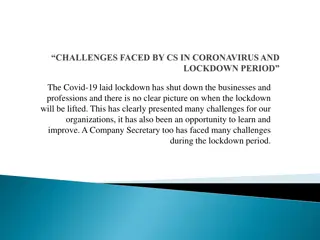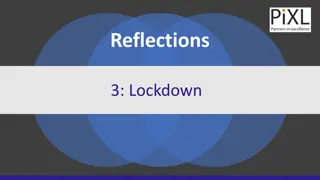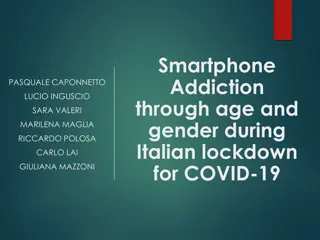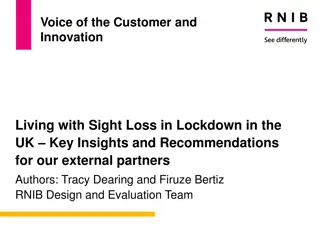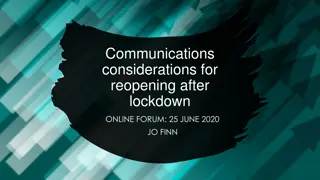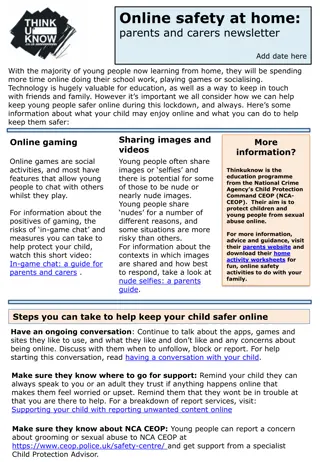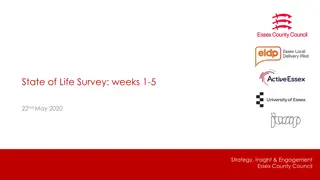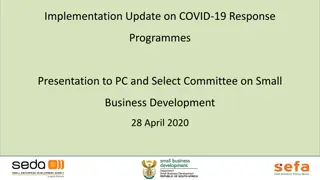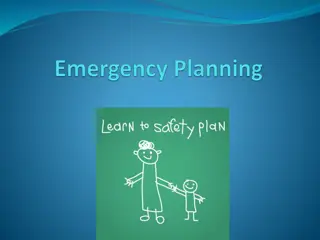Grade 9 Life Orientation Work During Lockdown
Learners and parents/guardians are advised to review attached notes for Grade 9 Life Orientation work during the lockdown period. The notes cover essential content and tasks for assessment. Upon completion, learners can explore options post Grade 9, such as the NSC and NCV qualifications, detailing the NQF levels and subjects required. The National Senior Certificate (NSC) and National Certificate Vocational (NCV) pathways are explained, highlighting the differences and outcomes for further education. Specific focus on NCV accreditation and TVET colleges in the Western Cape is provided.
Download Presentation

Please find below an Image/Link to download the presentation.
The content on the website is provided AS IS for your information and personal use only. It may not be sold, licensed, or shared on other websites without obtaining consent from the author.If you encounter any issues during the download, it is possible that the publisher has removed the file from their server.
You are allowed to download the files provided on this website for personal or commercial use, subject to the condition that they are used lawfully. All files are the property of their respective owners.
The content on the website is provided AS IS for your information and personal use only. It may not be sold, licensed, or shared on other websites without obtaining consent from the author.
E N D
Presentation Transcript
GRADE 9 LIFE ORIENTATION Good day learners and parents/guardians/caregivers RE: WORK FOR DURATION OF LOCKDOWN (20 30 APRIL) Please view the attached documents below. These are notes that learners must write into their workbooks or they can Print and Paste it into their books. This is of utmost importance as learners will be assessed on this content. I would suggest that the learner spends a maximum of 2 hours per week on the subject which would sufficiently cover the class time that is being lost. For example, Tuesday and Thursday, one hour each day. After completing these notes and reading the required content in the textbook (Pages 89 99), please complete the following task. Activity 1.1 (page 93) Questions 1, 2, 3b, 3c, 4
OPTIONS AFTER GRADE 9 NSC AND NCV QUALIFICATIONS The NQF (National Qualifications Framework) consists of 10 Levels. Once you complete the GET (General Education and Training) phase of school (Grades 1 9) you will have achieved NQF Level 1. FET (Further Education and Training) : Grade 10 - NQF Level 2 Grade 11 NQF Level 3 Grade 12 NQF Level 4 HET (Higher Education and Training) : Diplomas, Certificates, Degrees, Honours, Post-Graduate, Masters, Doctorate Qualifications NQF Level 5 - 10
NSC National Senior Certificate Staying at high school to do Grades 10, 11 and 12. You need to complete 7 subjects. 4 are compulsory: English Afrikaans Life Orientation Mathematics or Mathematical Literacy 3 are choice subjects: from the schools designated subjects. See if you can list the 12 subjects offered at MHS for FET phase?
NCV National Certificate Vocational Leave high school after obtaining Grade 9 to apply to study further at a TVET college. You need to complete 7 subjects. 3 fundamental components: English Life Orientation Mathematics or Mathematical Literacy 4 vocational components: 3 are compulsory (will do every year) 1 choice subject from recommended optional subject list Both NSC and NCV allow the student to obtain NQF Level 4 and proceed to the HET phase.
NCV continued Accredited: officially recognised and certified Pay attention to the minimum requirements for the courses, for e.g. Grade 9 certificate, age, some require a NQF level 2 (Grade 10), RPL (Recognition of Prior Learning) certain courses might require this The duration of the course It is a form of specialised training See how many TVET colleges you can identify in the Western Cape.
Implications (consequences) of choices between NSC and NCV NCV - National Certificate Vocational Find out which TVET colleges are in your area & what courses are offered at the different campuses. Consider your personality, interests, skills and values. Choose ONE of the programmes offered. Consider the fundamental and vocational components to make up your 7 subjects.
Once you have completed NQF levels 2, 3 & 4, you will obtain a NCV qualification, and able to start your career immediately. Your course is subsidised (money has been paid towards your studies by the Government), so you will have to pay the remaining difference. Consider additional costs such as transport, textbooks, accommodation. Apply for a financial aid if necessary. If you are interested in studying further at a HET institution, it will depend on the quality of your results and the chosen course. Enquire at the HET institutions you considering to study further at to determine if studying at a TVET college is recommended or necessary.
